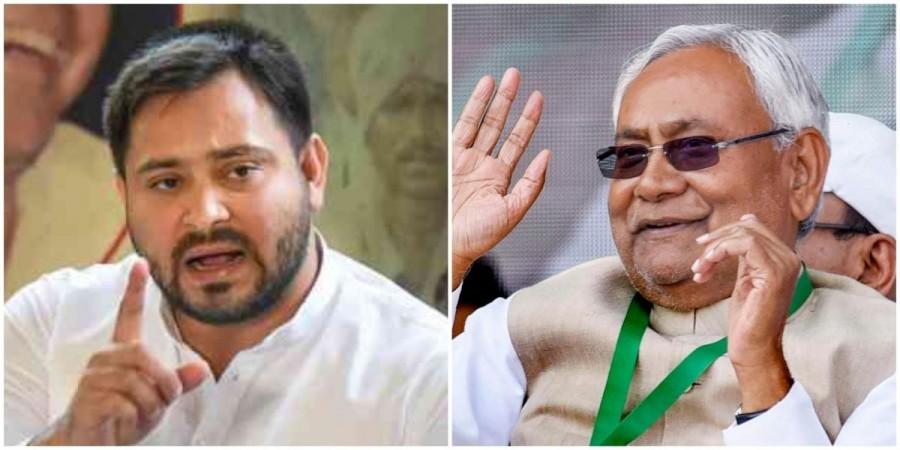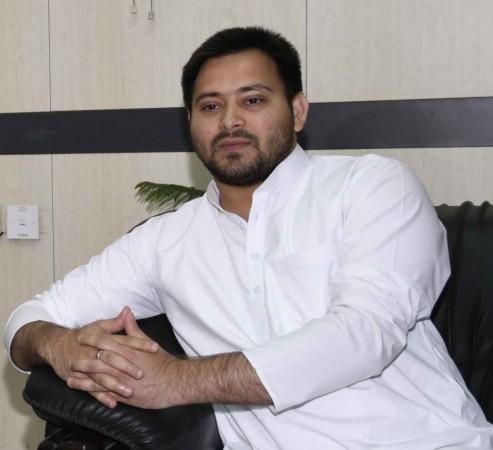
With the Election Commission's announcement of Bihar Assembly elections, the question which lingers in everybody's mind is whether three-time Chief Minister Nitish Kumar will retain the power or Tejashwi Yadav-led Rashtriya Janata Dal (RJD) will usurp him after 20 years.
Bihar Elections 2020 dates: Polling on Oct 28, Nov 3 and 7; results on Nov 10
Polls in Bihar, first-ever after the coronavirus outbreak, will take place in three phases on October 28, November 3 and November 7. The counting of votes will start on November 10, 19 days before the scheduled end of the current Assembly tenure, Chief Election Commission Sunil Arora announced in New Delhi on Friday.
Elections for 243-member Bihar Legislative Assembly will take place will three-phases amid the strict implementation of COVID-19 related protocols, with the polling booth receiving voters in hand gloves.
The polling will take place on October 28, November 3 and November 7; and the counting of votes will begin on November 10, 19 days before the end of the tenure of the current Legislative Assembly, according to the Election Commission of India.
Elections will be held at 71 Assembly constituencies in the first phase, at 94 seats in the second phase and at 78 constituencies in the final stage on November 7.
"In 1st phase, 71 Assembly constituencies in 16 districts, including most of the LWE (Left-wing extremism) affected districts will go for the poll. In 2nd phase, 94 Assembly constituencies in 17 districts & in 3rd phase, 78 Assembly constituencies in 15 districts will go for the poll," Election Commissioner Sunil Arora announced on Friday.
Elaborate arrangements, the commission said, has been made in view of the coronavirus pandemic which has so far infected over 58 lakh people and snatched away the lives of over 92,000 people in the country.
This is the first-ever election after the outbreak of China-originated COVID-19 pandemic, which is infecting over 80,000 people every day.
Throwback: 2015 poll results
In the 243-member Legislative Assembly, ruling National Democratic Alliance (NDA) had 125 seats including 69 of Nitish Kumar's Janata Dal (United) and 54 seats of Bharatiya Janata Party (BJP).
The last election was fought by BJP-led NDA alongside the Lok Janshakti Party, the Rashtriya Lok Samata Party (RLSP) and Hindustani Awam Morcha (HUM). BJP had contested 157 seats and bagged 53, claiming 25 per cent votes, according to India Votes.
To stop of the BJP winning streak, several Opposition parties had joined hands to form the Grand Alliance, projecting JD (U)'s Nitish Kumar as their chief ministerial candidate. The Grand Alliance included Janata Dal (United), Rashtriya Janata Dal, Janata Dal (Secular), Congress and the Nationalist Congress Party among the others.

RJD had emerged as the single largest party with 80 seats, while JD (U) bagged 71 seats and Congress won 27 seats. With the Grand Alliance setting an alternative, Nitish Kumar had taken the oath of the office for the third time and RJD's Tejashwi Yadav was sworn in as his deputy.
The Grand Alliance received a massive blow when Chief Minister Nitish Kumar decided to dump the RJD and joined hands again with BJP in 2017.
Making sense of present-day realities
A lot of has changed in the political landscape of Bihar since the last elections. RJD patriarch Lalu Yadav who, political analysts say, has nose on the ground and hands on the nerve of people, had campaigned vigorously in the last elections. Lalu is now serving in jail in connection with corruption cases. His absence will surely be missed by RJD workers.
Political watchers say RJD leader Tejashwi Yadav lack the skills and charisma that his father Lalu Prasad have. Since Lalu went to jail, rifts were seen in his own family – between his son Tejashwi and Tej Pratap over ticket distribution and other issues.
Tejashwi has also apparently failed to keep the house in order with several old Lalu loyalists publicly expressing disappointment over the handling of party affairs and quitting the party. The most recent example is of senior RJD leader Raghuvansh Prasad Singh who resigned from the party days after he passed away at a hospital in Delhi.
Former Union Minister Upendra Kushwaha-led Rashtriya Lok Samata Party (RLSP), which joined the Mahagathabandhan after the 2015 elections, has also indicated to exit the alliance. At a party meeting yesterday, Kushwaha said, "It is not possible to bring in a change in Bihar while standing behind the leadership of RJD," adding that he would take a decision on the course of his party in the days to come.
46 lakh masks, 6 lakh PPE kits: Polling during coronavirus pandemic

The commission has announced to provide hand gloves to every voter at the polling booth. Temperature of every voter will be checked and hand sanitisers will be provided to them at the polling stations, the poll body has said.
"Over 7 lakh hand sanitiser units, about 46 lakh masks, 6 lakh PPE kits,46 lakh masks, 6 lakh PPE kits, 6.7 lakh units of faces-shields, 23 lakh (pairs of) hand gloves have been arranged. For voters specifically, 7.2 crore single-use hand gloves have been arranged," Chief Election Commissioner Sunil Arora told reporters in New Delhi.
Coronavirus positive patients will be able to cast their ballot in the last hour of polling in their polling booth in strict supervision of health authorities. They can also avail the facility of voting through postal ballot. The polling time has been extended by one hour in view of the pandemic.
Among other challenges, COVID-19 has posed a big challenge for electoral processes. The pandemic has forced political parties to shun conventional methods to reach out to voters and adopt technology, something BJP is a champion at.
In the last three months as the pandemic rocked India, BJP launched a massive online programme, reaching its workers up to booth level. BJP ally JD (U) has also launched an online platform and mobile application to interact with its workers and electorate.
Other Opposition parties including RJD have failed to successfully adapt to the new norms, which is very likely going to hamper their prospects. While RJD has taken some measures, it seems insufficient in front BJP's massive online campaign and spending.
Code of conduct into force, hate speech and fake news to dealt with harshly
The commission has also called upon social media companies to ensure that their platforms are not misused during the elections. "Social media platforms are expected to make adequate arrangements to safeguard against misuse of their platforms and set up strict protocols to handle such issues as and when they arise," the commissioner said.
The commission's comment on social media bears significance at a time when political parties are going online to reach out to voters amid rising risks of the virus. "Social media use for mischievous purposes, flaring up communal tension will have consequences; hate speech to be dealt with harshly," CEC Arora warned the social media platforms.











